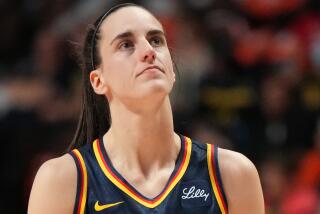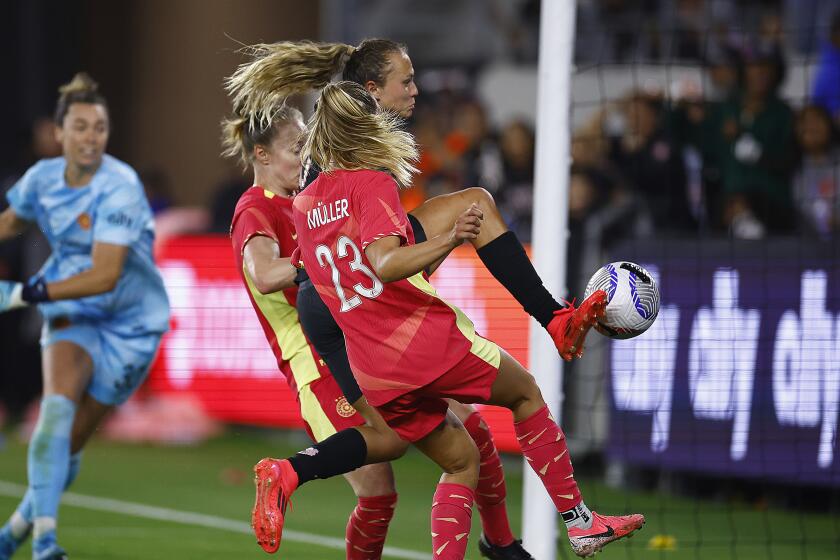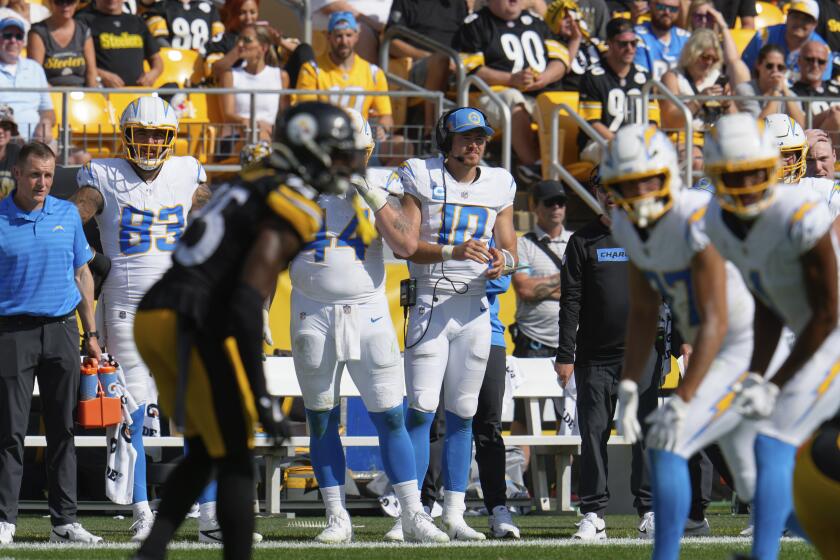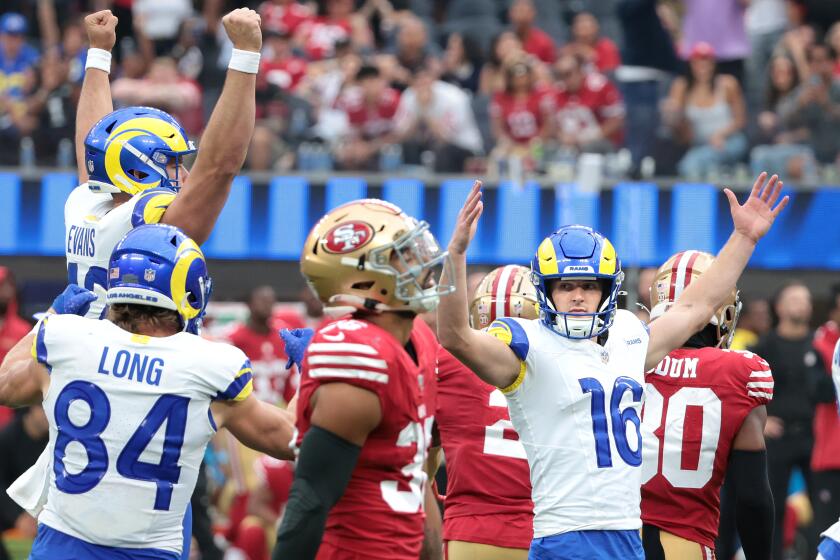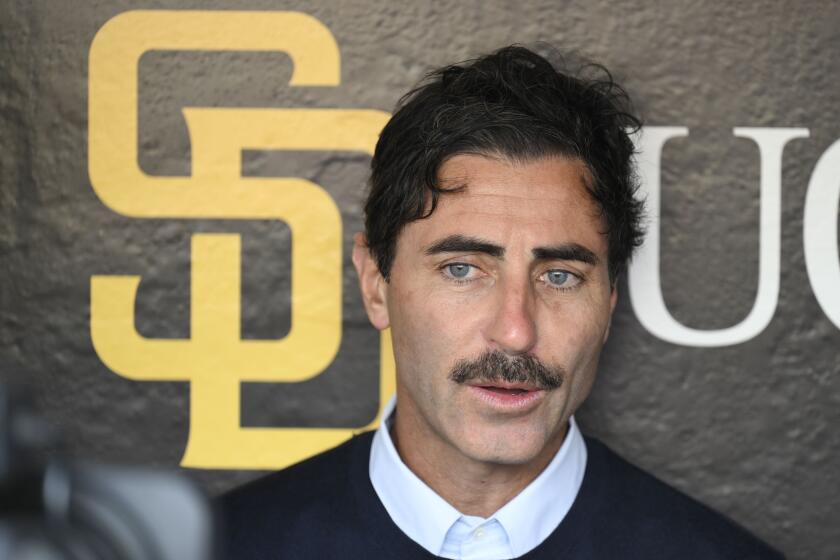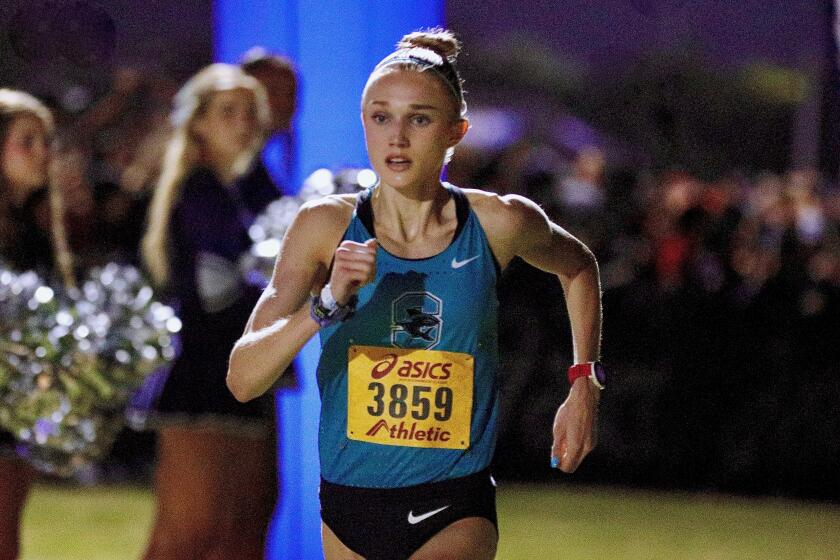Jim Ringo, 75; NFL Hall of Famer helped Packers to championships
Jim Ringo, the perennial Pro Bowl center who was a key member of the Green Bay Packers’ championship teams in 1961 and 1962 before being traded to the Philadelphia Eagles in a salary dispute, has died. He was 75.
Ringo, who had been living in Chesapeake, Va., died Monday after a short illness, according to NFL Hall of Fame President Steve Perry. His wife, Judy, said he had been battling Alzheimer’s disease since 1996 and most recently was being treated at a facility in Virginia Beach, Va.
His death came two days before his 76th birthday and nearly a month after the death of his former Packer teammate Max McGee, who died Oct. 21 from injuries in a fall at his suburban Minneapolis home. McGee was also 75.
One of the most dominant offensive linemen of his era, the undersized Ringo was drafted by the Packers in the seventh round in 1953 after playing college ball at Syracuse. He played in the NFL for 15 years -- 11 with the Packers and four with the Eagles -- and was named to 10 Pro Bowl teams. From 1954 to 1967, he played in a then-record 182 consecutive games.
He never weighed more than 235 pounds, the weight of many of today’s running backs and receivers. But Ringo turned his relative small size into an advantage, leading the way on the power sweep that made the Packers’ offense so effective.
Ringo had been a member of the Packers through the lean years led by coaches Gene Ronzani, Lisle Blackbourn and Ray “Scooter” McLean and had been voted to the Pro Bowl twice before Vince Lombardi joined the Packers in 1959.
Under Lombardi’s leadership, the Packers won NFL championships in 1961 and 1962, and the great coach noted that Ringo “epitomized the toughness and determination” needed to play center in the NFL.
And though he won All-Pro honors in those championship seasons, it didn’t help him when he brought an agent with him for contract talks with Lombardi before the 1963 season. Ringo was hoping to raise his $12,000 annual salary to $15,000.
As the story goes, Lombardi was caught flat-footed by the presence of the agent. He excused himself from the room and went out and made a phone call. When he returned five minutes later, he said: “Gentlemen, you’re talking to the wrong team. Jim Ringo now belongs to the Eagles.”
Ringo played for the Eagles from 1964-67, and although he never played on another championship team, he was apparently happy with his $15,000 contract. He was also closer to his home in New Jersey, and the team found him jobs in the off-season.
He went into coaching after his retirement, working as an assistant coach for several teams, including the Chicago Bears, Los Angeles Rams, New England Patriots and Buffalo Bills. With the Bills, he developed the “Electric Company,” the offensive line that led the way for running back O.J. Simpson to become the NFL’s first 2,000-yard rusher. He replaced Bills coach Lou Saban partway through the 1976 season, and the Bills lost their last nine games. He returned the following year, and the Bills went 3-11. Ringo was fired after the season and was replaced by Chuck Knox.
Ringo was also named to the NFL’s 1960s All-Decade team and named to the Pro Football Hall of Fame in 1981.
Born in Orange, N.J., Ringo played high school football in Phillipsburg, N.J., where he was named to the first squad of the All-State Football team, also as a center.
Survivors include his wife, Judy.
Funeral arrangements are pending.
More to Read
Go beyond the scoreboard
Get the latest on L.A.'s teams in the daily Sports Report newsletter.
You may occasionally receive promotional content from the Los Angeles Times.

